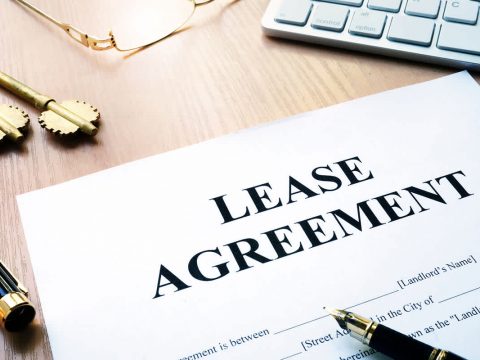- Have any questions?
- (850) 713-4866
- info@shorefrontrestorations.com
Is It the Right Decision to Sell My House?

House Too Big and Looking To Downsize?
February 1, 2021
Leaving the Accidental Landlord Life
February 1, 2021Have you ever gotten so convinced of doing one thing, then later live to regret the consequences? All of us have. That’s why we sometimes get analysis paralysis, where we feel stuck and unable to move because of overthinking. This phenomenon occurs especially during crucial life decisions, such as switching careers, marriage, buying a home, but in our case today, selling your house.
While buying a house is a tedious ordeal, letting it go is just as stressful. After living in it for so long, changing and reconstructing it based on your needs, overcoming so many of life’s trials there, and essentially growing old with the building itself, having to sell the house is easy on paper, but might not necessarily be as easy not on ink. There are situations where people put their properties up for sale, but later end up withdrawing their decision when they have to seal the deal with their signature on the dotted line. This feeling of guilt or regret is known as seller’s remorse. What can you do to get over it?
Your Reason Is Your Solid Foundation
Not everyone’s good at knowing the reasons for our actions at the get-go, so it may be better to start with getting the answers to the following questions:
Why am I trying to sell the house? Is this home enough for my family? Will it be sufficient for my plans? Are my reasons valid? They might sound a little stupid, but the complexities in life sometimes hide the simplicity of why we want to do things. Answering these questions could make you completely abandon the whole endeavor altogether if your logic isn’t as sound as you thought. But if you do decide to sell, use those reasons as your anchor whenever doubts come up during the selling process.
Mental, Emotional, and Financial Preparedness
To help you know if you’re making the right decision, take a pen and paper and start writing down the pros and cons of selling the house. For example, if you’re going to move because of your job, then listing the property for sale is a sensible advantageous reason. The disadvantage may include heavy emotional damage, a higher cost of living in a new area, or forcing an adjustment to new people in a new place.
Next, you might want to have a plan prepared. If you get an offer from a buyer asking you to get things done in 30 days, are you ready to move out? If you’re the type to keep things around for their sentimental value, then don’t lie to yourself that you won’t be missing the house. It might sound like an overreaction, but some people, which may include you, your partner, or your kids, might not be ready to face the truth that they won’t be able to step into their house anymore. After a potential shedding of tears, remembering your reasons for selling should put you back on track.
Once you’ve spent some time with your feelings for a while, consider focusing on what’s ahead. Are you prepared to shell out thousands of dollars on getting an agent and renovating the place? If you’re going to be moving after the deal is closed, then you’re likely going to have to furnish and personalize your new house as well. Is your mortgage already paid off? You may have to cover sizable closing costs too!
Consulting With the Experts
If you’re serious about selling your house, consulting with experts is a must. Yes, you do need to familiarize yourself with the real estate industry, particularly the selling process, but unless you’re actively trying to become a real estate agent, there’s a limit to how much you can learn on your own.
We would advise looking for a reputable agent who makes deals in your area. If ever you’re trying to sell your house because you heard that the housing market might collapse because of some global pandemic, ask your local agent if that applies where you are. They’re the ones doing the deals, so they should know what’s going on. Real estate agents can also validate your estimation of the costs required to get the selling process underway. This includes the price of the home, which may be the key to your decision to proceed or not. Knowing that the house will only be sold for a lower price than expected may put you back at square one, so it’s best to get it out of the way before you sign anything.
Speaking of signing, read the listing agreement. The listing agreement is the contract between you and the agent. This contains details such as if the agent has exclusive rights to sell, the contract’s duration, and some of the duties needed from both parties. Regarding the topic at hand, one thing in the agreement that may be important to you is the protection clause. This clause protects the agent in cases such as sellers trying to avoid paying commissions by finding buyers before the agent could. The contract may also have something in place for instances like the seller deciding not to close the deal when the agent has already found a buyer. If that happens, you’d likely be able to keep the house but owe the agent their hard-earned money, so keep that in mind.
They could also open up new avenues to tackle your concerns too! Examples may be giving you an opportunity for a contingency contract, where you can have your property sold only after you’ve found a replacement home for yourself. Just remember not to be afraid to ask questions if you have trouble understanding some terms in the contract or what’s going on (or about to happen). And, it’s not only real estate agents you can consult. You can seek advice from real estate attorneys and brokers as well.
With all of that said, it’s not going to be easy to sell your first home, but it’s good to know what to expect and assure yourself that you’re on the right track.
Getting Past the Hurdle Sooner
One last thing we’d like to suggest is to work with a real estate investor. Before you ask, yes, we are real estate investors advertising our services. Shorefront Investments has been doing deals for years with people in the same situation. But how do we (and other investors) differ from agents? With us, there’s no need for agents, renovations, and numerous home visits – all in exchange for a lower price tag on the home. This advantage also means you’re likely going to get the house sold much faster.
Depending on your needs, this alternative solution may suit you better. Some people don’t like getting burnt slowly during the selling process, especially if they’re constantly getting stressed over the idea of parting ways with an old friend of a house. If you prefer getting past the hurdle sooner, then give us a call, send us a message, or fill out our “Sell My House” form, and we’ll get in touch with you as soon as possible!




